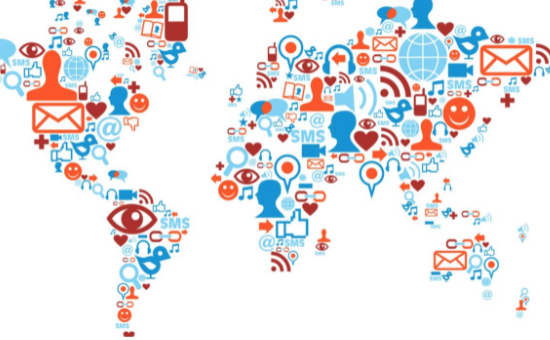Written by: Alex Mueller, Editor in Training
GROWTH: As social media grows, global society becomes increasingly dependent upon it.
Humanity currently thrives in an era of mass communication. Online platforms, including Facebook, Twitter, and Amazon, enable direct correspondence on levels unprecedented in history, with social media and its online social network becoming integral to modern society. Alongside this societal integration, however, the power and size of social media itself overwhelmingly grows, establishing an ominous interdependence with our daily lives and society.
As social media grows, it blends with society’s economic structure. In October 2021, Facebook, alongside its sister platforms Instagram and WhatsApp, witnessed a temporary, global outage, which reportedly stifled business operations and hampered workplace communications for over five hours. “Everything is down, my whole business is down,” Samir Munir, an Indian entrepreneur, who relies on WhatsApp for business transactions, reported to the New York Times. Other individuals, including Irish entrepreneur Mark Donnelly similarly recounted the loss “of thousands of sales.” By itself, Facebook’s short shutdown challenged the economic health and livelihood of individuals throughout the world; its services, rendered unable to bolster society, temporarily altered people’s societal wellbeing. These economic challenges signify a global, systemic interdependency between social media platforms such as Facebook and economically associated individuals. With rises in online, social media dependent businesses, particularly in freelance occupations, the economical foundations of individuals and (by extension) society seemingly prove increasingly reliant upon social media services.
Online social networks further define society’s image of truth. In their article “The Economic Effects of Social Networks,” published in the National Bureau of Economic research, Johannes Stroebel and Theresa Kuchler study trends between perceptions of the United States housing market and social networks. Referencing a Los Angeles Facebook survey, they report “that individuals with friends,” whose local house prices recently grew, “were more optimistic about Los Angeles housing market investments,” with an opposite trend of decline and pessimism also recorded. As Stroebel and Kuchler further observe radical differences in opinion regarding the housing market amongst Los Angeles neighbors, these observations accentuate the embedded relationship between individual thought and social media. Even though local realities and opinions potentially contradicted their views, surveyed individuals relied upon their online, social networks to derive impressions regarding the housing market and overarchingly their surrounding reality. Social media and its associated social networks ultimately influenced their perception of thought, subsequently illustrating an interdependent connection with the human mind. On a mass scale, the advent of cancel culture, internet sensationalism, and online social forums, where individual beliefs clash and impressions enshrined, further reflect this social interdependence of perceived knowledge on a societal level.
However, these economic and social interdependencies prove not isolated to social media. Indeed, past inventions such as the telephone, radio, and television, alongside historical developments in mass publicity, previously enabled the development of mass societies, partially dependent upon the social networks and economic opportunities such inventions provided. In the report “Social Media’s Growing Impact on our Lives” by writer Summer Allen for the American Psychological Association (APA), Jeffrey Hall of the University of Kansas even postulates that the criticism of declining in-person contact, oftentimes directed against social media, represents an issue, which “has gone on for more than one hundred years.”
Yet, the expanding influence of social media, a global social network of societal interdependence, over society represents a new frontier. Contrary to previous shifts in mass society, social media and its interdependent relationships represent a large, global phenomenon, where not only American society, but the entire world actively upholds an economic reliance on and direct, social connection to its services. Ultimately, this sheer connection of dependency between social media and the global world (on an individual and societal scale) seemingly foretells a future increasingly reliant on social media’s growing socioeconomic whim. However, if society abandons or nullifies the looming perils of its interdependency, social media’s influences may be controlled.

